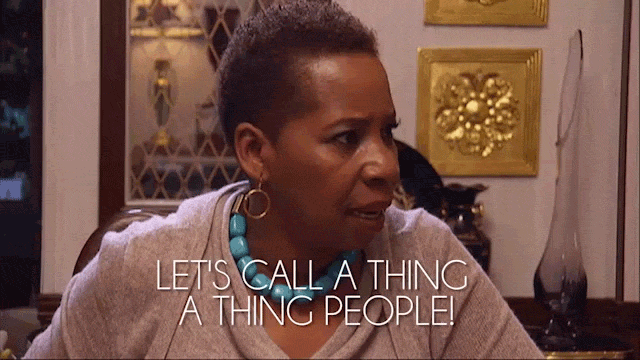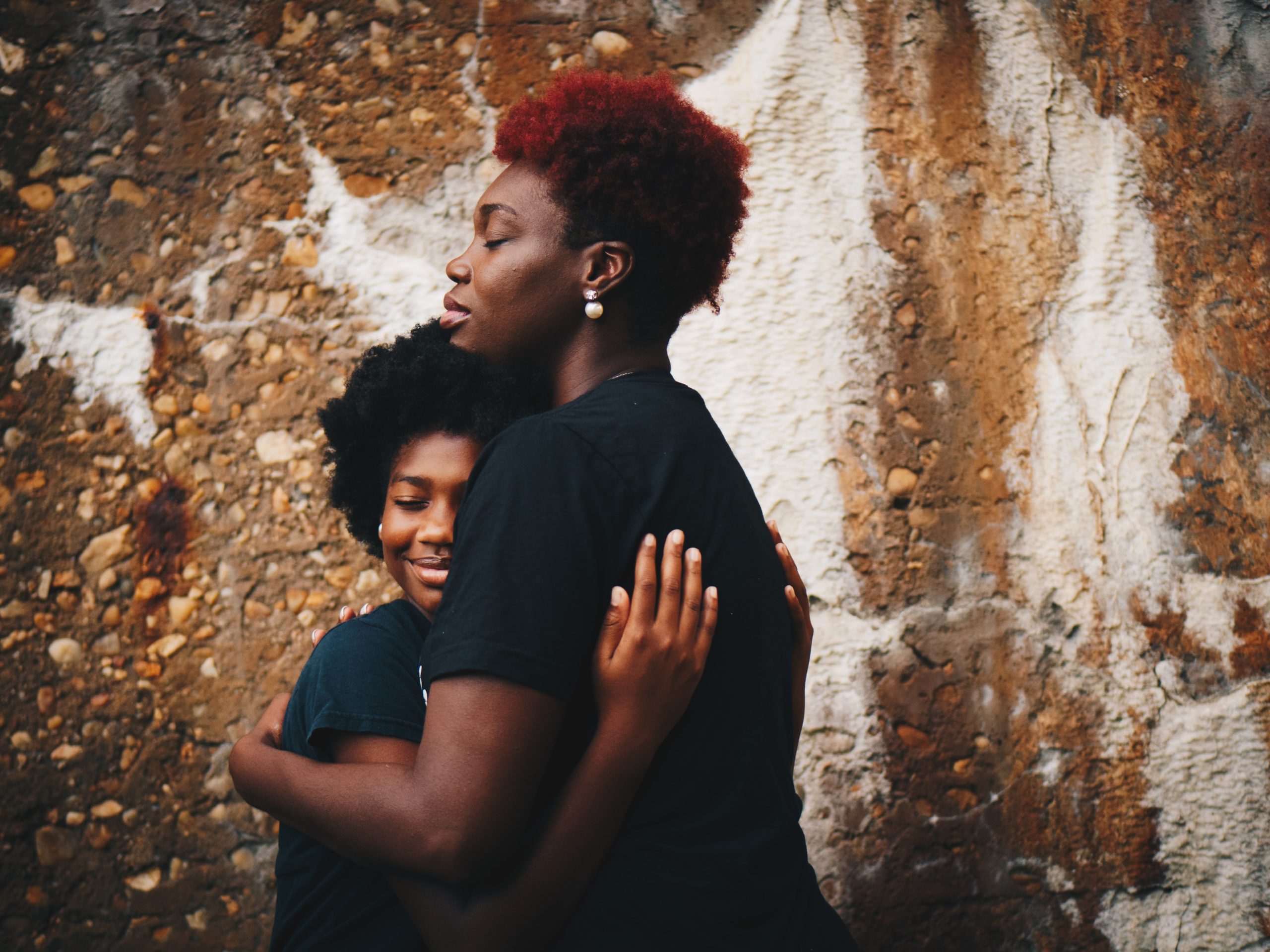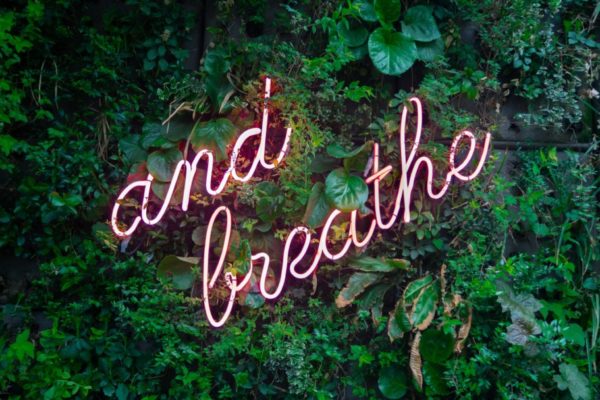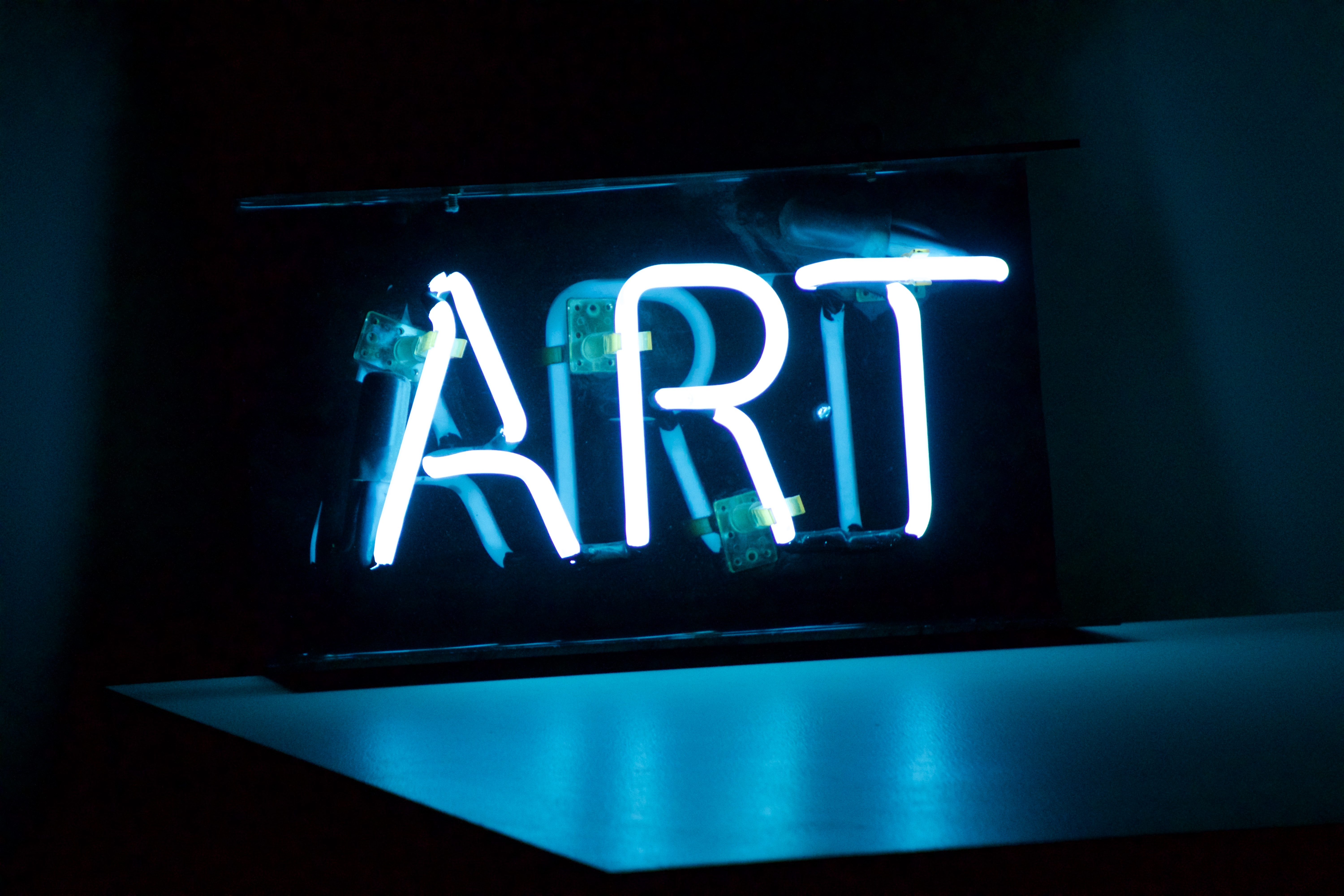
3 Tips for Dealing with a Narcissist in Your Life
If you frequent the mental health side of apps like TikTok, Instagram, and YouTube, you may have come across a post or two from people who have encountered a narcissist in their lives. This is a very common occurrence as anyone around you could be a narcissist. It could be a parent, sibling, child, lover, friend, another family member, colleague, boss—basically anyone.
For proper clarification, a narcissist is a person with an extremely self-centered personality with little to zero empathy for others. They often take advantage of people who are more vulnerable than them. While there is a legitimate mental health condition for narcissism (narcissistic personality disorder), many people do exhibit narcissistic traits without having NPD.
Narcissism might be a common phenomenon globally, but it’s been statistically proven that narcissism is more than twice as common in the Black community. In some cases, the actions of the narcissist in your life may not have much of a direct effect on you—for instance, if the narcissist is a distant relative that you don’t see often. But in other cases, and oftentimes too, the narcissist in your life is a parent, a lover, a coworker, a bosom friend, or someone who you interact with daily. And because you have to deal with this person round the clock, the actions of this narcissist in your life can easily slip into narcissistic abuse.
This is where it gets really serious.
The trope “strong Black women” may exist, but the truth is that we are also incredibly vulnerable. This is a trait that narcissists love to prey on over and over again. As a result, so many Black women have experienced or are experiencing narcissist abuse today. And healing or moving away from this narcissist abuse are processes that not many Black women feel they have the strength to push through.
Nevertheless, if you are dealing with a narcissist in your life, there are two things I want you to be certain of today:
- You are not alone in your struggles.
- Toleration isn’t the answer.
The longer you tolerate the behavior of a narcissist, the worse the effects of their actions on your mental and physical health will become. You will begin to experience intense feelings of shame or guilt. You will find that you’re slowly losing your self-esteem and sense of self. You will begin to feel isolated (you aren’t!) and your other relationships will begin to suffer. You may begin to indulge in different escape behaviors such as overeating, substance use, and alcoholism just to feel a few moments of freedom from the narcissist.
Thus, to effectively deal with a narcissist and avoid or curb the effects of their actions and behavior in your life, you cannot be tolerant or forbearing. You need to get proactive and take actions to protect yourself, and if necessary, to heal too.

3 Tips for Black Women to Effectively Deal with Narcissism
Most times, the narcissist in your life is someone you love and deeply care for. But you also need to put yourself and your wellbeing first. Thus, here are 3 tips to effectively deal with a narcissist and recover from narcissistic abuse.
1. Recognize the Narcissist.
First, you must identify the narcissist in your life. The person will oftentimes be a sweet talker with a ton of charm. You will catch them very often in lies, manipulation, or blatantly disrespecting others.
Once you recognize the narcissist, you must then realize what effect(s) they’ve had in your life. Were you subject to humiliation, controlling behavior, intense blaming, or any other kind of abuse from them? Did any of their actions make you feel like you’re worth less than you actually are? Did you find yourself in situations where they would take advantage of your love or the relationship between you two?
Always remember that the actions and behavior of the narcissist are not and will never be your fault.
2. Counteract the Narcissus in them.
Fun fact: The term, “narcissism”, is named after the mythological figure, Narcissus, who fell in love with his own reflection.
One thing about narcissists—they do not handle criticism well. So the last thing you want to do is get antagonistic or try to retaliate against their actions. Hence, here are some actions that you should take.
Define your boundaries and enforce them. A narcissist will always be highly self-absorbed, and so they tend to cross boundaries a lot. Therefore, be very clear to them that your boundaries are important to you. Then lay down the consequences of crossing your boundaries and let your word be your bond.
Take back control of your own life. Set your own schedule, organize your spaces and possessions in the ways that suit you, and set apart ample time for self-care. Overall, do all the things that will make you feel like you’ve taken your reins back into your own hands.
If the abuse of a narcissist gets too much to handle, then it might be best to end the relationship. Trust me, walking away completely is the best way to find yourself again. You may need some support when leaving the relationship (see tip 3), but never ever let anything they say or do fool you into coming back.
3. Seek support.
Finally, you’re going to need people who will validate, comfort, and help you. This could be trusted friends or family, a professional counselor, or a dedicated support group.
Don’t be scared to open up about your emotions. Whether it’s fear of loneliness, anxiety from finally taking action, or grief from the lost relationship, you’ll find that letting it all out will aid you through your healing process faster.
We’re here for you at Urban Playology!
To effectively recover from a relationship or experience with a narcissist, you need to see them for who they really are, take the right actions, and find the right support. Remember that it’s never too late to seek support, regardless of how long ago your experience was.
At Urban Playology, we provide transformative psychotherapy, counseling, and creative arts therapy for the healing of Black women, families, and LGBTQ+ folks. Reach out to us today and we will provide you with support and assistance that is the perfect fit for you.
Check out this video on black independence and self-validation.
Check out this podcast on letting go:
Learn More
Find the Missing Piece to Your Puzzle Through Wellness Coaching
At Urban Playology, we’re passionate about helping you build a life that makes self-love, happiness, and healing a top priority. Our new integrative wellness coaching provides all of this and more!
Whether you’ve been in an entanglement that would give Will and Jada a run for their money or you want to improve your mental health to become the strong black queen we know you are, we’re ready to embrace your needs.
Here’s all you need to know about our wellness coaching service:
What is wellness coaching?
A wellness coach can help you lift the fog and see things much clearer and support those wanting to make lifestyle and wellbeing changes.
You will have a safe environment to express yourself when you are feeling lost at the initial consultation and throughout your development while also being held accountable for being the best version of yourself! You’ll talk about what kind of approach works best for you.
Your wellness coach will then address any imbalances in your life, such as inadequate self-care or energy-related issues. Through a variety of means, including health coaching affirmations and weekly homework you will have defined goals to work towards.
What’s the difference between coaching, consulting, counseling, and psychotherapy?
- Coaching: a method of developing and attaining goals with the support of a person who asks you pertinent and helpful questions. Your coach will focus on your strengths, weaknesses, opportunities, and problems in relation to your goals.
- Consulting: This service provides answers to specific questions based on a professional’s expert knowledge.
- Counseling: A counselor will analyze your life patterns and help you work through your distress with healthier coping methods.
- Psychotherapy: a lengthier and more in-depth method of improving mental health and overcoming social or emotional issues. Counseling will go into your past and help you become more aware of how your experiences have shaped you.
Who should consider wellness coaching?
Did you know that LeBron James spends about $60K a month on wellness? That’s right, it’s that important and so many black celebrities have shared the power of therapy! Wellness therapy is for everyone and we welcome people of color, members of the LGBTQ+ community, and black families to use our services.
- You might want to consider coaching if the following applies:
- You want to find the perfect partner but need help healing from previous relationships.
- You’re considering a career change.
- You want to commit yourself to living a happier and more fulfilling life.
- You have a specific goal that you want to achieve.
- You’d like a holistic approach to improving your physical health.
The great thing about wellness coaching is that it can provide clarity and progression in many areas of your life and challenges you thought were just meant to be can finally be overcome.
Are you ready to have your glow up? Get in touch with us and begin your wellness coaching journey today.
Learn More
The Fight for Your Child’s Well Being: Parental Allyship
In this tumultuous moment, corporations and privileged communities are learning how to support underrepresented groups in a way we have never seen before. From million-dollar corporate responsibility initiatives addressing economic disparities to editorial think pieces dissecting privileged activism, the world is awakening to appropriate allyship. Being an ally is an ongoing process that involves self-education and thoughtful, effective action to uplift a marginalized person or group. Our commitment to your child at Urban Playology is grounded in this very principle – partnering with your family at every step of the journey to manifest dopeness and facilitate the energy healing process.
You and I are working alongside each other to help your offspring find solid footing in their most difficult moments. As a champion of your success, I wanted to provide guidance to direct your parental allyship and help you deviate from some common missteps.
Allies in Action
Your child needs a parent with an action plan. Some of us were raised by the previous generation where ‘just be thankful you have food on the table and clothes on your back’ was used as a dismissive daily slogan of intolerance. So, it may have been a huge step for you to allow your family to seek help, or even acknowledge your child’s emotional needs exist. While you have indeed taken a huge stride that will impact your lineage for decades and we applaud your strength to tear down generational impediments, it simply boils down to this: more work needs to be done. Your active, engaged, and measurable participation is required. When we define ourselves as an ally in action we think outside the scope of sympathy and enter into what I call the ally treatment plan, outlined below:
- Heal thyself. The flight attendant at every airline suggest that we put the oxygen mask on ourselves before helping others. The same rules apply to mental health services. We have customized a few different types of therapy for our caregivers as a foundational step towards healing their inner child. Trauma from our past that we have not properly dealt with shows up in our parenting. Your inner child is screaming through your thoughts and behaviors demanding that you learn how to love yourself. The question that we are helping you address is simple: Is my child’s behavior triggering something in me?
-
- Collaborate with the therapist. Schedule time with your clinician monthly to discuss treatment at length and be receptive to ideas on how you can step in as a resource.
- Example: Journal any observations or concerns that arise with your child in between their session. i.e.: are you noticing signs of anxiety? Depression? Come to your check-in armed with information/questions so we can show you what therapeutic actions to take.
- Acknowledge your shortcomings openly. The best part of allyship is the willingness to be educated – it’s okay not to have answers and mental health awareness takes time. Relinquish fear of appearances and openly admit your blind spots to your child and be prepared to hear more. When it becomes uncomfortable and scary, lean in.
- Collaborate with the therapist. Schedule time with your clinician monthly to discuss treatment at length and be receptive to ideas on how you can step in as a resource.
- Decenter and make space. After you admit your blind spots, become receptive to your child’s feelings, and do your own research to better understand, make room. Avoid hijacking the dialogue or overwriting their experience with your own. Let them take ownership of the moment to establish their sense of self-esteem.
- Avoid victim-blaming. Your child cannot save you, nor do they have the capacity to comfort you in their moment of need. Something I often hear from children is the immense guilt they feel about being a burden. While I understand the frustration you might be having around their challenges, meeting their fragility with pity cries of ‘where did I go wrong’ is not productive. Their behavior is not a result of your shortcomings. This leads me to my final point.
- Acceptance. Accepting your child for exactly who they are and where they are is the formula for peace and reconciliation in your relationship. Letting go of your expectations and yielding to the moment can create a path forward for the healing process.
Our children are our most sensitive vulnerabilities. The simple result that we hear from you most often is a desperate cry to “just make my child okay.” At Urban Playology, we help families water seeds of resiliency to aid in that process by serving as your active ally through our services. As a stakeholder in the fight for your child’s well-being, will you join us? Let’s get to work.
Learn More
WHEN WAS THE LAST TIME YOU TOOK IN A FULL BREATH?
May I take some time with you? Breathe with me.
When was the last time you took in a full breath? Not a weighted sigh, a draw in after a heavy break, but a full, intentional breath? One where you watch your chest rise and fall? An act of selfless love that the Universe has granted you to receive?
Do you remember breathing? Not a breath carried through anxiety – a short flutter when you remembered to stop holding your breath in anticipation. A solid breath, one where you hold at the top and sip through your lips to fill the remaining slots of your lungs.
May I take some time with you? Breathe with me. Rest one hand on your belly, the other over your heart. Remind yourself that you hold the power to pull in every ounce that will fill you. If anxiety or depression meet you here, grant them permission to leave. Anxiety tends to suspend our breath while depression lays across our chests, making our breathing shallow. Take your space here. Take one deep breath in. Count slowly to eight as your fill your chest and pull in from your diaphragm.
Hold. Two beats.
Exhale. A solid breath. One not forced. One fluid, unbroken breath. With your exhale, release the tension. Release the fear. Release the expectations.
Again.
Deep breath in. This time, imagine yourself being poured into. Be it water. Coffee. Tea. Whatever sustenance brings you joy. Imagine with your mind’s eye watching this liquid fill you to the brim. What color is it? Is is warm? Cool? Thick? Savory? Sweet? Pay close attention as you reach your brim. As the last drops fall into your being, what does your face hold? A smile? A look of relief?
Hold. Two beats.
As you exhale, I want you to imagine pouring yourself back into your being. Here, there is no pouring from your cup. Instead, you give of your saucer, saving what’s in your cup for you. We meet ourselves again at the edge of each breath like a reintroduction. So many forfeited their lives or had them stolen for us to forget how to breathe. Life both slows down and accelerates our breaths. Bring yourself back to center as only you can. Exhale in full into every drop is accounted for. Repeat.
As many times as you need to remind yourself how to breathe again.
Learn More
COMMUNICATION REALLY ISN’T THE ISSUE
Today it feels like things are happening to you versus for or around you. A burgeoning new collection of masks most likely dot your homescape, reminders to place them back across your face once you leave the car to head into the store. A store where you once knew where everything was now is overrun by newcomers and those intent on bucking the new world and system we find ourselves in.
If your skin is Black, the voyage is much harder, as the virus hits us hardest. We tend to take the positions of those deemed essential, but only when our lives are on the line. Something about this time and place is different. Could it be that those not Black and POC have gotten a taste of systemic marginalization in these last few months? That $1200 to $1700 check wasn’t enough to cover those rainy days we are to prepare for or to purchase those boots with the straps we hear so much about?
Many of us are moving through this space with a partner at our side. It’s a beautiful thing to navigate the peaks and valleys of this world with someone who understands. But sometimes, because the world can leave everything as nails, we grow into hammers against those within our spaces. How can we go loudly into that good fight and not turn our weapons on each other? Below, I list a few takeaways to try at home. I’ll also be including notes for those of us who may be single at this time.
Shift Forward
Fighting for our sanity in the face of an ever-changing political and cultural landscape will take a toll on any unit. So how does one avoid subbing in your partner for the world? One thought is to shift your energy forward. Share with one another the fear you have and what it stems from. Living out this life in a Black or brown body comes with its fair share of hardships. Having someone there to listen to those aches can shift focus from what’s not being understood in the world to what’s plain and simple at home. This does indeed require active communication. One cannot assume we know the plight because we share a tone. Each of us has a story all our own, with its own nuances, levels and understandings. Being heard as well as hearing plays an integral part in making home a restful place for the weary.
Being single in the age of Corona is a double-edged sword. Whether a single parent to a pet or human(s), going out into the world can feel like a greater risk as it’s just you. It’s just you gathering the grocery items, lugging the 16-count paper towel pack to the house. May be just you ordering the masks, takeout or even writing up protest signage and donation requests. I know the feeling. What I’ve done, instead of diving into yet another project to distract me from me, is allow myself to be present in this moment. I’ve dialed back my social media usage so I’m not constantly digesting Black trauma. I’ve shared with my coworkers that there are days that I’m not okay and I deserve room to feel those emotions. I’ve taken up more space in my singlehood even more than when I was partnered, so my presence looms larger as I stand in the light. Shifting focus to what you need to thrive along with how to survive in this time is a revolutionary act. Do not allow anyone to pull focus from what you need to be well during this time.
See Each Other Where You Stand/See Where You Stand
Has there ever been a moment when you’re reminded of how your partner looks? Even at surface level, the mind forgets what is routinely in its focus, lighting up when something or someone new comes into our line of sight. We can see our person without fully seeing them, and that vision can tend to fade, unintentionally and otherwise, over time. Things for your partner may have changed recently. The stress of this new livelihood may even have them looking at themselves in a new light. One of the most powerful acts of love that can be done in this time is seeing, truly seeing them, where they stand currently. Perhaps battle-worn, with a fervor activated through trial. As I shared with a friend of mine while chatting about when things would get back to “normal”, normal as we knew it no longer exists. Many of us have shed old selves that have been holding on to old forms. Like a snake molting yet refusing to release its old skin. During quarantine, we may have grown bigger or smaller, found a new niche or completed an old project, rejected old thought patterns and actively worked to build new ones. Many of us have done nothing and everything at once. If partnered, you are reintroducing yourself in a multitude of ways.
If single, do you see where you are? Both physically as well as metaphysically? Can you see the sand between your toes even as you stand in your work boots? What are you allowing yourself to hear about you? What beliefs are you choosing to stand firm in that involve you? What’s your new normal? How does it feel? Does it scare you? Worry you? Provoke you to take charge or hang back? Is your intuition more heightened than before? Good. You’re right where you’re supposed to be. The wars haven’t ended and your resolve to win has only increased. Learn when to fight and when to rest. Do both with intention.
Create Daily Rituals
Prepping to go out into the world requires a routine, now more than ever. Shower. Brush your teeth. Pick out our mask. Remember your latex gloves. Grab extra wipes. Hand sanitizer attached to your bag or keychain. Disinfect your keys. Take your immune booster and/or multivitamin. If you have a full household, double or even triple that workload before crossing the threshold. It’s a lot. With that said, how often is meditation added to that list? How long has it been since you remembered to take a full breath?
Tonight or whenever you’re reading this, steal some moments for you to ground yourself. Pull away from the laptop, schedule, screaming people for a bit to reset. Place a glass of spring water on your windowsill to collect the rays of the moon. Speak into the water all the affirmations you’re seeking to manifest in your life. Drink it in the morning.
Listen to your body
The simple things are what we tend to neglect when under stress. It’s our mind’s way of holding on to control. Our bodies know the pangs of warning, even when it doesn’t know the cause. To meet our bodies where they are, take the time to listen. Firstly, go pee when you have to pee! Yes, your position may be comfortable and moving would only be one more thing added to the list of things to do, but holding on to your urine brings more pressure and stress to the body, as well as holding in toxins that need to be released. Speaking of elimination, hydrate, hydrate, hydrate. Drinking enough water during the day can aid with flushing out your system as well as boosting your mood. A dehydrated body is an overworked body. Hydrating with water and/or tea is a welcome love note to your system. Need to move to expend stuck energy? Create a joint playlist that serves as a flag for the two of you. An audio respite in a time of trouble. As a single Black woman, my Spotify playlist consists of self-love anthems ranging from Top 40 hits to Broadway showtunes. One that hits me right in the feels every time I need reminding of my power even as I’m alone is “Holy” by Jamila Woods. It pulls at the place in me that grew up believing all things holy are outside of me, instead of resting beneath my skin. Play your songs as tribute to yourself and each other.
Remember sleep? More so a sleep schedule? Whether nighttime is now in the middle of the day, get in as much rest as you can. Try not to over-do it, as that will cause more problems in the long run. But do rest on purpose when your body calls for it as best you can.
Check in with your ancestors
We are our ancestors. The warriors that met faces on the battlefields of existence on every plane. In Tulsa. In Seneca. During Tuskegee. Under the horrendous knife of Sims. Now more than ever, our ancestors are warring for us on the other side as we tear down monuments to our demise in this realm. I’m originally from Richmond, VA, the original capital of the confederacy. For Juneteenth, I walked the Africal Ancestral Burial Ground with libation and offering. After a while, I just sat there, taking in the energy vibrating from the ground. A friend said it must have been heavy. I told her isn’t wasn’t. She looked surprised. Instead, I told her the ground was moving, as if our ancestors buried there were raising up together, banging on tables, clapping and clasping hands to say we’re finally doing it: revolting without fear. With Ancestor veneration and reverence, there is recognition. An understanding that though they may no longer be here in the physical, their legacies – the ones bought and sold in blood, riches, feast and famine – live on in us at cellular levels. Connecting to our dead ones is honestly a means to connect with ourselves. We honor by paying tribute and libation. We chatted above about hydrating and thriving in the midst of struggle. I encourage you to place a glass of spring water and a white candle on a flat, raised surface and call in your Ancestors of love, light and power for a talk. Prepare to meet levels of yourself in that space. Connection is here to be had.
Whether partnered with another or self-partnered, understand there will be moments of loneliness in every capacity. I know the feeling of being alone with a warm body laying next to me. There is safety in acknowledging that the inklings of being alone may be here for a bit, but lonely we are not. The flipside is being so full of someone that you lose grasp of yourself, which reveals a level of codependency that can render a loneliness deeper than simply “feeling” alone. As home continues to evolve, the landscape of this nation begins to crumble, there is still a home which to return. Home is you.
Learn More
The Good Fight
Today it feels like things are happening to you versus for or around you. A burgeoning new collection of masks most likely dot your homescape, reminders to place them back across your face once you leave the car to head into the store. A store where you once knew where everything was now is overrun by newcomers and those intent on bucking the new world and system we find ourselves in. If your skin is Black, the voyage is much harder, as the virus hits us hardest. We tend to take the positions of those deemed essential, but only when our lives are on the line. Something about this time and place is different. Could it be that those not Black and POC have gotten a taste of systemic marginalization in these last few months? That $1200 to $1700 check wasn’t enough to cover those rainy days we are to prepare for or to purchase those boots with the straps we hear so much about? Many of us are moving through this space with a partner at our side. It’s a beautiful thing to navigate the peaks and valleys of this world with someone who understands. But sometimes, because the world can leave everything as nails, we grow into hammers against those within our spaces. How can we go loudly into that good fight and not turn our weapons on each other? Below, I list a few takeaways to try at home. I’ll also be including notes for those of us who may be single at this time.
Shift Forward
Fighting for our sanity in the face of an ever-changing political and cultural landscape will take a toll on any unit. So how does one avoid subbing in your partner for the world? One thought is to shift your energy forward. Share with one another the fear you have and what it stems from. Living out this life in a Black or brown body comes with its fair share of hardships. Having someone there to listen to those aches can shift focus from what’s not being understood in the world to what’s plain and simple at home. This does indeed require active communication. One cannot assume we know the plight because we share a tone. Each of us has a story all our own, with its own nuances, levels and understandings. Being heard as well as hearing plays an integral part in making home a restful place for the weary.
Being single in the age of Corona is a double-edged sword. Whether a single parent to a pet or human(s), going out into the world can feel like a greater risk as it’s just you. It’s just you gathering the grocery items, lugging the 16-count paper towel pack to the house. May be just you ordering the masks, takeout or even writing up protest signage and donation requests. I know the feeling. What I’ve done, instead of diving into yet another project to distract me from me, is allow myself to be present in this moment. I’ve dialed back my social media usage so I’m not constantly digesting Black trauma. I’ve shared with my coworkers that there are days that I’m not okay and I deserve room to feel those emotions. I’ve taken up more space in my singlehood even more than when I was partnered, so my presence looms larger as I stand in the light. Shifting focus to what you need to thrive along with how to survive in this time is a revolutionary act. Do not allow anyone to pull focus from what you need to be well during this time.
See Each Other Where You Stand/See Where You Stand
Has there ever been a moment when you’re reminded of how your partner looks? Even at surface level, the mind forgets what is routinely in its focus, lighting up when something or someone new comes into our line of sight. We can see our person without fully seeing them, and that vision can tend to fade, unintentionally and otherwise, over time. Things for your partner may have changed recently. The stress of this new livelihood may even have them looking at themselves in a new light. One of the most powerful acts of love that can be done in this time is seeing, truly seeing them, where they stand currently. Perhaps battle-worn, with a fervor activated through trial. As I shared with a friend of mine while chatting about when things would get back to “normal”, normal as we knew it no longer exists. Many of us have shed old selves that have been holding on to old forms. Like a snake molting yet refusing to release its old skin. During quarantine, we may have grown bigger or smaller, found a new niche or completed an old project, rejected old thought patterns and actively worked to build new ones. Many of us have done nothing and everything at once. If partnered, you are reintroducing yourself in a multitude of ways.
If single, do you see where you are? Both physically as well as metaphysically? Can you see the sand between your toes even as you stand in your work boots? What are you allowing yourself to hear about you? What beliefs are you choosing to stand firm in that involve you? What’s your new normal? How does it feel? Does it scare you? Worry you? Provoke you to take charge or hang back? Is your intuition more heightened than before? Good. You’re right where you’re supposed to be. The wars haven’t ended and your resolve to win has only increased. Learn when to fight and when to rest. Do both with intention.
Create Daily Rituals
Prepping to go out into the world requires a routine, now more than ever. Shower. Brush your teeth. Pick out our mask. Remember your latex gloves. Grab extra wipes. Hand sanitizer attached to your bag or keychain. Disinfect your keys. Take your immune booster and/or multivitamin. If you have a full household, double or even triple that workload before crossing the threshold. It’s a lot. With that said, how often is meditation added to that list? How long has it been since you remembered to take a full breath?
Tonight or whenever you’re reading this, steal some moments for you to ground yourself. Pull away from the laptop, schedule, screaming people for a bit to reset. Place a glass of spring water on your windowsill to collect the rays of the moon. Speak into the water all the affirmations you’re seeking to manifest in your life. Drink it in the morning.
Listen to your body
The simple things are what we tend to neglect when under stress. It’s our mind’s way of holding on to control. Our bodies know the pangs of warning, even when it doesn’t know the cause. To meet our bodies where they are, take the time to listen. Firstly, go pee when you have to pee! Yes, your position may be comfortable and moving would only be one more thing added to the list of things to do, but holding on to your urine brings more pressure and stress to the body, as well as holding in toxins that need to be released. Speaking of elimination, hydrate, hydrate, hydrate. Drinking enough water during the day can aid with flushing out your system as well as boosting your mood. A dehydrated body is an overworked body. Hydrating with water and/or tea is a welcome love note to your system. Need to move to expend stuck energy? Create a joint playlist that serves as a flag for the two of you. An audio respite in a time of trouble. As a single Black woman, my Spotify playlist consists of self-love anthems ranging from Top 40 hits to Broadway showtunes. One that hits me right in the feels every time I need reminding of my power even as I’m alone is “Holy” by Jamila Woods. It pulls at the place in me that grew up believing all things holy are outside of me, instead of resting beneath my skin. Play your songs as tribute to yourself and each other.
Remember sleep? More so a sleep schedule? Whether nighttime is now in the middle of the day, get in as much rest as you can. Try not to over-do it, as that will cause more problems in the long run. But do rest on purpose when your body calls for it as best you can.
Check in with your ancestors
We are our ancestors. The warriors that met faces on the battlefields of existence on every plane. In Tulsa. In Seneca. During Tuskegee. Under the horrendous knife of Sims. Now more than ever, our ancestors are warring for us on the other side as we tear down monuments to our demise in this realm. I’m originally from Richmond, VA, the original capital of the confederacy. For Juneteenth, I walked the African Ancestral Burial Ground with libation and offering. After a while, I just sat there, taking in the energy vibrating from the ground. A friend said it must have been heavy. I told her isn’t wasn’t. She looked surprised. Instead, I told her the ground was moving, as if our ancestors buried there were raising up together, banging on tables, clapping and clasping hands to say we’re finally doing it: revolting without fear. With Ancestor veneration and reverence, there is recognition. An understanding that though they may no longer be here in the physical, their legacies – the ones bought and sold in blood, riches, feast and famine – live on in us at cellular levels. Connecting to our dead ones is honestly a means to connect with ourselves. We honor by paying tribute and libation. We chatted above about hydrating and thriving in the midst of struggle. I encourage you to place a glass of spring water and a white candle on a flat, raised surface and call in your Ancestors of love, light and power for a talk. Prepare to meet levels of yourself in that space. Connection is here to be had.
Whether partnered with another or self-partnered, understand there will be moments of loneliness in every capacity. I know the feeling of being alone with a warm body laying next to me. There is safety in acknowledging that the inklings of being alone may be here for a bit, but lonely we are not. The flipside is being so full of someone that you lose grasp of yourself, which reveals a level of codependency that can render a loneliness deeper than simply “feeling” alone. As home continues to evolve, the landscape of this nation begins to crumble, there is still a home which to return. Home is you.
Learn More
Hope for the Holidays
If the holiday season evokes more stress than excitement in you, you’re not alone.
In truth, the holidays have become something bigger than they need to be. Every year, they seem to take up more and more of the winter season, with Christmas music playing before trick-or-treating is even over.
Absolutely nothing is wrong with wanting to avoid getting swept up in the media madness that has made this time of year into something more. There is no pressure to feel anything specific about the holidays. If they make you feel joyful, fantastic, but if they don’t, that’s okay, too. For many LGBTQ people, the holidays can be filled with anxiety and trauma as we anticipate seeing family and friends who may have rejected our identities or to whom we are not yet out.
If this time of year is indeed a source of stress for you, Urban Playology offers special holiday sessions and consultations. For now, here are a few tips to help get you through the holidays:
1. Begin a daily grounding ritual before the holidays begin
Whether first thing in the morning or before bed each night, doing something consistent every day will help you feel grounded and present within your own body. This ritual can be anything, from walking your dog to meditating to dancing around your room to putting on your favorite body oil to talking to a friend.
Whatever ritual you choose, make sure you begin before the holidays and continue doing after. Just like there is a warm up and a cool down when we exercise, we need to both prepare our minds and bodies for the events to come and also help them recover when they are over.
2. Volunteer and Commit Random Acts of Kindness
Doing something kind for another person is one of the best ways to feel better when you are sad or stressed. It allows you to step outside of yourself for a while—and it just feels really good. So sign up to volunteer at a soup kitchen or do an extra round of dishes at home without asking for a thank you or acknowledgement—anything you do that will brighten someone’s day is sure to also brighten yours.
3. Self-care, self-care, self-care
It seems obvious, but when you’re hungry, eat. When you’re tired, sleep. When you have to go to the bathroom, go. When you need a moment to be alone and breathe, excuse yourself. All of this impacts your stress levels, so make sure your body and mind are nourished and being given what they need.
4. Make a family pact
If you’re worried about difficult conversations coming up at family gatherings, find out if your family will agree to certain topics being off the table while you’re all together.
5. Focus on the positive
Whatever we focus on gets bigger. If we focus on the positive, we see more positivity. If we focus on the negative, we see more negativity. Do your best to focus on the positive things in your life, and maybe even the positive things about your family.
6. Know that it’s okay to decide to stay home this year
Sometimes, it’s okay to make the difficult decision to avoid being with the people who cause you stress. If you’re going to be more upset or traumatized after visits with your family, if it will be harder for you to go back to work or go back to your friends or partner, ask yourself if it is really worth it.
Remember, your family and where you come from is only one aspect of who you are. You are not just the child of your parents, the sibling of your siblings, the grandchild to your grandparents. You are a writer, a photographer, a doctor, a friend, a partner, someone with interests and hobbies. You are bigger than your family.
7. Consider temporarily giving up social media
Take a break and focus on yourself this holiday season. If you need help committing to the hiatus, find an accountability partner that can keep you on track.
8. When you’re feeling true despair, wait five minutes
When you are starting to feel really dark and despairing, give yourself five minutes. If you wait five minutes, that feeling will peak, and then wait another five minutes and you should start to feel better, especially if you have someone you can share your despair with. Urban Playology clients have access to their therapist 24/7. Reaching out to a therapist or a friend you can trust can quickly help you start to feel more regulated.
Keep in mind that there is no pressure for your holiday season to be any one thing. Everything is going to be okay, as long as we stop trying to define what “ok” looks like.
Here are some more articles about the importance of self-care:
https://www.fastcompany.com/90435139/too-busy-for-self-care-ask-yourself-these-four-questions
https://www.forbes.com/sites/tamiforman/2017/12/13/self-care-is-not-an-indulgence-its-a-discipline/#3737530ffee0
https://hellogiggles.com/love-sex/friends/19-things-self-care/
Learn More
Play Therapy & Creative Arts Therapy
At Urban Playology, we meet people where they are. That includes young loves, ages 2-18, and their families. Play therapy and creative arts allow us to extend our supreme embrace to young loves and families.
Perhaps your young love’s personality or their energy has shifted in a way that’s got you concerned. Maybe they are underperforming or underachieving at school. Perhaps the other caring adults in your close-knit community ie a coach, or a dance teacher, or an extended family member, etc express concern after a recent encounter with your young love.
Perhaps you’re finding it more difficult to sleep soundly at night because you find yourself more worried about your young love. But you can’t put your finger on it. Maybe on the surface and by all accounts, everything seems or should be just fine. Perhaps you’ve been meaning to make sure your young love has the support they deserve to get through a tough time your family has been having ie conscious uncoupling, a move, a recent death, etc. Maybe they’ve actually asked if they could see a talking doctor or a talking doctor who works with children or a fun doctor for children.
Perhaps your young love has recently received a new diagnosis ie ADHD, ADD, depression, anxiety, gender identity concerns, etc. and you’re trying to figure out what it all means.
It may be hard to believe but our experience is that play therapy and expressive arts can help make things clearer.
The toys are the words and play is the language. Meeting young people who are hurting where they are means making what’s natural to them be available to them.
In play therapy and expressive arts therapy, both widely research-based modalities, young people can express themselves-their thoughts, their feelings, their hopes, and dreams.
There are 2 preliminary office-based consultations if you will.
At the 1st appointment, about 50 minutes in duration, we meet with parents or caregivers first. We meet in the play therapy space which allows parents to see and experience the place where their child’s healing will take place. We converse freely amongst ourselves as adults. Sometimes parents or caregivers share photos of, videos of, and/or artwork created by their young love hands.
At the 2nd appointment, also lasting about 50 minutes in duration, parents and their young loves come to the space and young people are encouraged to see how they feel here if this is a place they’d like to come to on a regular basis for a while.
Families are then encouraged to return home and have a family conference about their collective decision about how they wish to proceed.
Would they like to have Urban Playology as support on their healing journey?… That’s the question they get to ask themselves.
We wait patiently for follow up from all families. We totally trust you to do what’s best for your family.
We book the 1st official play therapy session. Parents or caregivers are welcomed to participate in this session, especially if young people request such. We find that even when they’re hurting, young people still know exactly what their hearts need. And yes, sometimes the young people who make their way 2 UP want the grown-ups to play with them.
There are few rules in the world of play therapy. Perhaps that’s why we love it so! 🙂 The rules that do exists ie toys remain in the play therapy room etc hopefully and lovingly anchor young people to the real world.
Sometimes we enjoy a nourishing snack with the music of the choice of the young ones while we create healing art or healing scenes in the sand tray. Sand tray therapy is a co expressive arts modality.
Sometimes we take a walk. I think the hardest thing about having your young love in play therapy and/or expressive arts therapy is the waiting and the enigmatic energy of it all. We get to trust them and lean into trusting ourselves as the grownups.
It’s like: “How does playing with toys that honestly seem less modern than what we’ve invested in at home help with my child’s tantrums, or potty training accidents, or their nightmares?!? This is quite the expensive use of our finances and our time!”
To that valid concern, I would say that when young people feel fully supported in their healing, they get to really focus on that healing. We follow their lead every step of the way. We get to trust them and lean into the trust of ourselves as the grownups.
When you really think about it, how could something so life-giving have anything but a sustainably positive impact?…
If they are worried about being a burden or are worried about the perceived burden as associated with their issues, therapy may have a negative impact. When they are ready for their long goodbye, it always becomes crystal clear.
Here’s one of our favorite books about play therapy. Sometimes families read the book at home before our 1st appointment or during the 1st all member appointment.
Here’s a couple of our favorite videos about play therapy.
Here’s one of our favorite articles about play therapy from the Association for Play Therapy, the accrediting body for Xanthia’s credential.
https://www.a4pt.org/page/PTMakesADifference/Play-Therapy-Makes-a-Difference.htm
Here’s one of our favorite articles about expressive therapy & creative arts therapies:
https://www.psychologytoday.com/us/therapy-types/expressive-arts-therapy
Xanthia has earned the most advanced credential-the Registered Play Therapist Supervisor credential. She is also a national trainer of other hopeful play therapists and expressive arts therapists. She has also studied under internationally recognized master experts in the field. In 2018, Xanthia & Urban Playology also received the Service Award from the MD/DC Branch of the Association for Play Therapy.
Learn More
Finding The Dopest Psychotherapist Ever For You!
You deserve a therapist who sees you and fully embraces you. Finding a supreme fit takes time for exploration and may be challenging for many. You are worth the effort. I’ve read a lot of blogs about how to find the right therapist.
Most take a practical approach.
* Education-check.
* Professional discipline i.e. Clinical counseling, clinical psychology, clinical social work.- check
* Licensure Credentials-check.
* Insurance accepted-check.
* Experience working with others who have had your problem-check.
* Theoretical approach that seems to align with your beliefs & values-check.
* Preferred availability i.e. weekdays, weekends, etc-check.
All of these are super important! What’s talked about less often is the need to take a moment for reflection about how you feel when you’re talking to your prospective therapists upon the first encounter via email or phone and to what degree the therapist might be a supreme fit for your current needs- logistically, emotionally, and financially.
* How quickly after your first outreach were you able to connect with the psychotherapist?…
* Does the conversation flow?…
* Do you feel hopeful after the encounter?…
* Was the psychotherapist kind, courteous, & respectful towards you?…
* Did they take time to respond to your questions in full?…
* Do the quoted rates i.e. co-pays, etc. work for your budget?
Some psychotherapists take an initial administrative approach when you reach out to them. They are happy to get you scheduled right away. Maybe within the week. Others, like us at UP, offer a brief complimentary consultation first. We value you & your time & we want to ensure that we have a clear sense of what’s hurting your heart right now. If you’ve reached out and someone’s profile really resonates with you, it may be helpful to reach out to them via email and phone. You may want to follow-up if you have not heard back from them within 24 business hours.
For scheduling, be prepared to offer up your supreme availability. It increases the likelihood of snagging an appointment sooner than later. Do what you can to plan your flexibility. Once your appointment is scheduled, guarding your availability may involve partial or full disclosure to key stakeholders i.e. immediate supervisors, closest friends, and family members, etc. regarding your new standing therapy appointment.
Here are other introspective queries:
* Am I ready for the commitment of time that psychotherapy may require of me?…
* Am I ready for the emotional vulnerability that sometimes comes with psychotherapy?…
* Am I ready for the temporary financial investment of psychotherapy?…
* To any of the aforementioned, how would I know if I was ready?…
* What are my hopes & expectations of psychotherapy?… To be honest, I think it can take time to find a really dope therapist i.e. maybe 1-3 months depending on your search dedication. Consider that many therapists are seeing back-to-back clients during the workday. And if you’re returning to therapy after being away for a while, know that the landscape of mental health support may have evolved. I know that when you’re hurting, a process like the one described may seem arduous, perhaps insurmountable. Sometimes people feel that this is a lot more work than they bargained for, especially when they’re hurting and they’re just really in need of kind, supportive counseling. You get to decide what takes precedence-meeting with the first available person or doing the work on the front end to improve the likelihood of identifying a supreme fit. Sometimes it either takes several sessions with one therapist or several first meetings with several different therapists. I suggest that you pursue each scenario exclusively of one another for optimal results.
In my experience, openness & willingness to connect with your supreme fit therapist can be a kind of spiritual or existential experience. The waiting and uncertainty can be tough when you are already in a lot of emotional pain. In this case, you may consider working with a foster therapist on a brief consultative basis while also continuing in your search for a therapist to call home. Perhaps your foster therapist can support you in identifying a dope therapist as well. Some do opt to get support from other healers i.e. reiki practitioners, sound bath therapists, astrologers, priestesses, nature therapists, etc. They enlist those healers while waiting for the identification of a therapist or while on the waiting list for their top choice therapist.
Sometimes, supportive dyads or triads will reach out together to prospective psychotherapists. This system can help reduce the anxiety that can sometimes come with meeting a new psychotherapist. Sometimes families use this outreach technique as well. If you prefer a more secondary backstage support plan for finding your dope therapist, perhaps you can enlist an accountability partner. You can schedule progress check-ins with your partner so that hopefully you don’t feel as alone in the process. Sometimes you may have to invest in a paid assistant who, once they know what you’re looking for, can help you narrow down your search.
Psychology Today (hyperlink), an extensive online hub for psychotherapists and healers of various disciplines, & Therapyforblackgirls (hyperlink) a nationwide directory of female therapists of color, may be resources. Bark.com (hyperlink) is a potential resource that allows you to answer a few pertinent questions about your dream therapist. Think Match.com. You then receive emails of prospective psychotherapist matches that you can reach out to directly. The National Queer & Trans Therapists of Color Network is another resource for individuals who wish to work with a psychotherapist who specializes in providing kind and affirming counseling support to the LGBTIQA community. You may also want to check out some of our favorite therapists of color in the DMV as found here (hyperlink). Ask around too! You’d be surprised by who else knows of a good therapist.
Lastly, whoever you choose as your therapist, make sure they really wanna know you, make sure they really see you. Make sure they really feel you. You deserve that. If by chance, you are transitioning to a new therapist, I invite you to first be sure that you aren’t running from a growth opportunity with your current therapist. It may be helpful to practice transparency with your current therapist to make sure that you are on the record about how you are experiencing the work with them. You may want to allow 1-2 months to see how things go. And then if you are still feeling compelled to explore other options, you may want to let them know. This is a part of healthy transitions and long goodbyes. Remember that therapists are human too and many have been called to this work.
I promise that if you practice vulnerability and you are honest with your dope new therapist, you WILL feel better. And although therapy is not for everyone, I do believe it can be beneficial to anyone.
Whatever you do, don’t give up! You, mon cherie, deserve the world.
Learn More
SUPREME EMBRACE is TOTALLY Our Vibe
We all know what it feels like to enter a space & be apprehensive about whether you wanna be there or whether you’re welcomed there. It’s feels like Alessia Cara’s Here video. Super awkward & uncomfortable! And when you’re already feeling like an outlier in your daily life, you become super attuned to the welcoming vs. exclusionary energy.
And it just shouldn’t be like that when you’re going to counseling. It’s a big courageous step to ask for support in the 1st place. The least we can do at Urban Playology is make sure you feel welcomed & supremely embraced from the moment you initially connect with us via phone or email to the moment you leave the office for the 1st time. And of course, thereafter!
There’s all these neuro-biological nuances to my method. I spend lots & lots & lots & lots of time refining it. Think Jiryo Dreams of Sushi. I’ve studied under the best relationship experts in the DMV and abroad. I have a diverse family of mentors and my interaction with these amazing people have really fortified the foundational elements to my method. I guess when I, as the pupil, was ready, my teachers appeared.
Healing abound is available to those who truly feel safe & even more embraced, no matter what. So bring your yoga mat, your playlist, your bestie, your boo, your sushi, your puppy (sorry no cats-I’m allergic, but you can totally bring a photo) and let’s get to work on the healing you deserve so much. And plus, if karma is real, why not just be nice?!? O! It’s not all on us, as therapists. I do believe that clients contribute the practice of trusting the therapist, trusting the process. I’ve never met a person who didn’t practice trust. And I know I never will.
Learn More